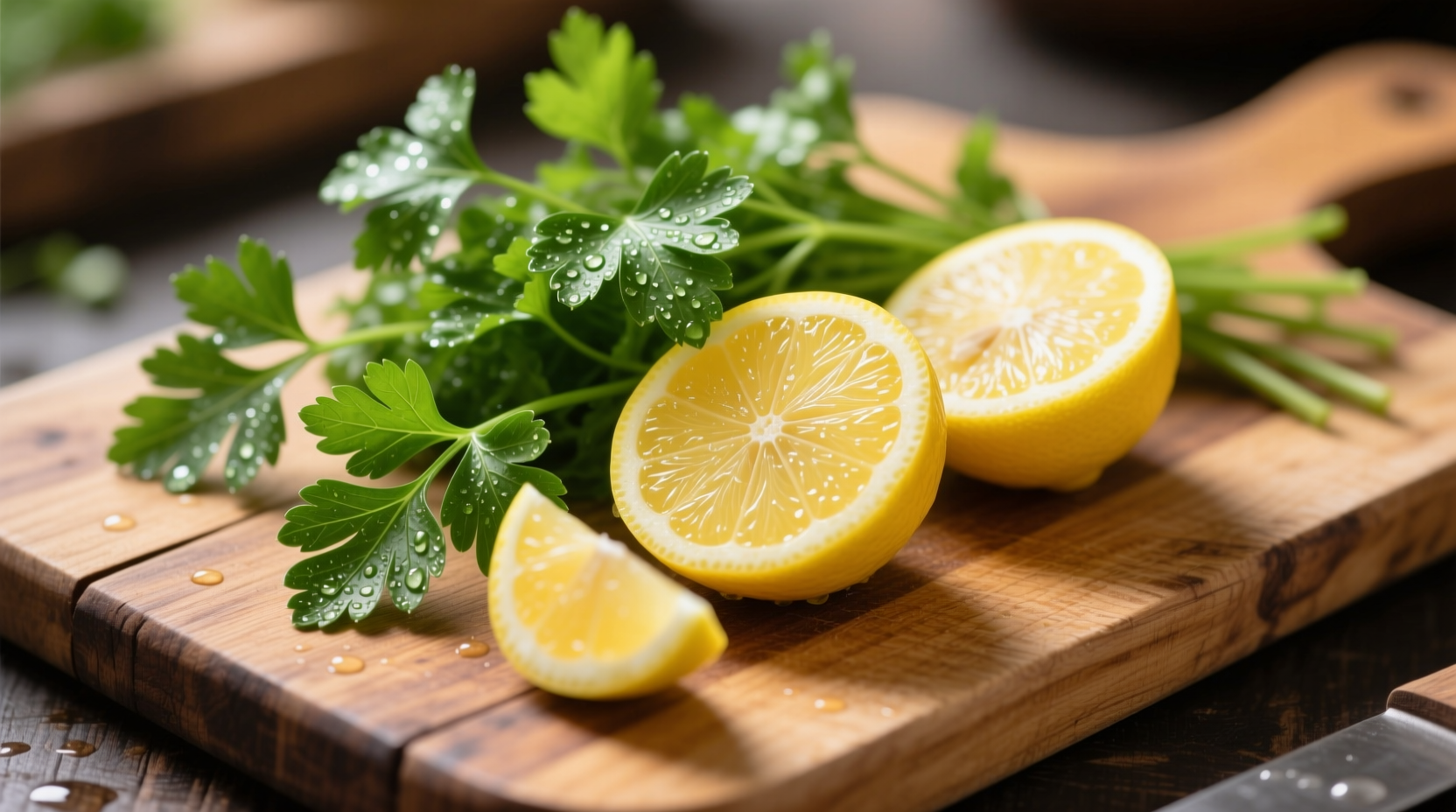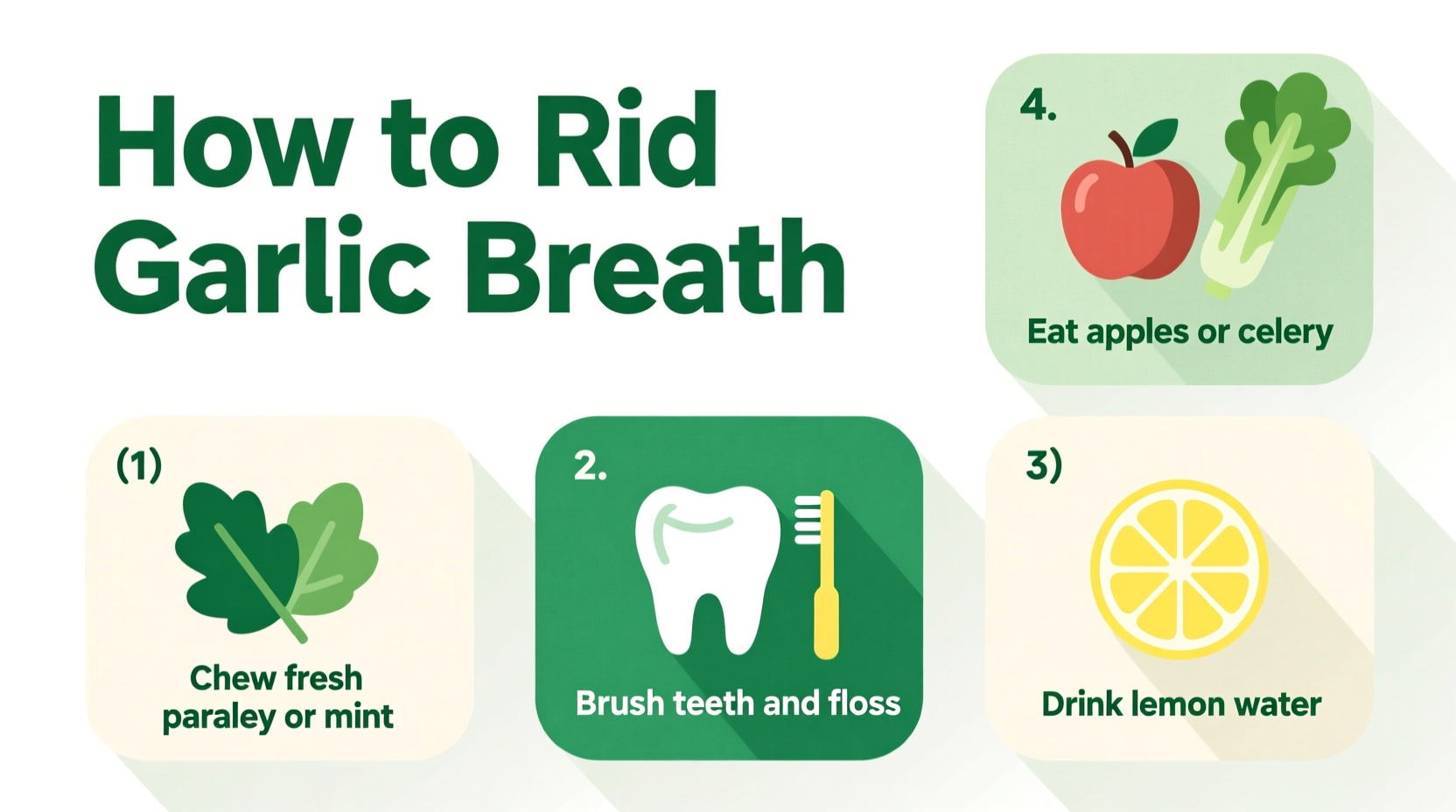Drink milk while eating garlic, chew fresh parsley, or consume citrus fruits to neutralize garlic breath compounds. For immediate relief, brush your teeth thoroughly and use a tongue scraper. The most effective approach combines immediate oral hygiene with foods that break down sulfur compounds responsible for garlic breath.
Why Garlic Breath Lingers: The Science Behind the Smell
Garlic breath isn't just about food particles stuck in your mouth. When you eat garlic, your body breaks down allicin into volatile sulfur compounds like allyl methyl sulfide. These compounds enter your bloodstream and are expelled through your lungs and skin, which is why garlic breath can last up to 72 hours after eating. Understanding this process explains why simply brushing your teeth provides only temporary relief.
Immediate Solutions: What to Do Right Now
When you need quick relief from garlic breath, focus on both oral hygiene and compounds that neutralize sulfur molecules. The American Dental Association recommends a multi-pronged approach for best results:
Oral Hygiene Protocol
- Brush teeth for two minutes with baking soda toothpaste (sodium bicarbonate neutralizes acids)
- Use a tongue scraper to remove bacteria from the back of your tongue
- Rinse with hydrogen peroxide solution (diluted 1:1 with water) for 30 seconds
- Floss thoroughly to remove trapped food particles
Natural Neutralizers
Certain foods contain enzymes that break down sulfur compounds. Research from Ohio State University shows that consuming these foods during your garlic-containing meal provides better results than waiting until afterward:
| Food | Active Compound | Effectiveness Timeline | Recommended Amount |
|---|---|---|---|
| Fresh parsley | Chlorophyll | 15-30 minutes | Small handful |
| Lemon juice | Citric acid | Immediate | 1-2 tablespoons |
| Apples | Phenolic compounds | 20-40 minutes | Half a medium apple |
| Milk (whole) | Fat content | While eating garlic | 8 ounces |

Prevention Strategies: Enjoy Garlic Without the Aftermath
Food scientists at the University of California have found that modifying how you prepare garlic affects its odor potential. These techniques reduce the formation of volatile sulfur compounds:
Cooking Modifications
- Heat treatment: Cook garlic at 140°F (60°C) for 10 minutes before adding to dishes to deactivate the enzyme responsible for allicin formation
- Acid pairing: Combine garlic with lemon juice or vinegar during cooking to stabilize compounds
- Timing: Add garlic later in the cooking process for milder flavor and reduced odor potential
Strategic Food Pairing
Research published in the Journal of Food Science demonstrates that certain food combinations significantly reduce garlic breath intensity. The most effective pairings include:
- Garlic + high-fat dairy (whole milk, yogurt, cheese)
- Garlic + cruciferous vegetables (kale, broccoli, cabbage)
- Garlic + polyphenol-rich foods (apples, berries, green tea)
Long-Term Solutions for Persistent Garlic Breath
For those who regularly consume garlic for health benefits but want to minimize social impact, consider these evidence-based approaches:
Hydration Strategy
Increasing water intake helps flush sulfur compounds through your system faster. A study in the Journal of Agricultural and Food Chemistry found that drinking 16 ounces of water immediately after eating garlic reduced breath compounds by 30% within 30 minutes.
Activated Charcoal
When taken as directed, activated charcoal supplements can absorb sulfur compounds in your digestive tract. The European Food Safety Authority notes that 500mg taken with meals may reduce odor intensity, though it should not be used regularly without consulting a healthcare provider.
What Doesn't Work: Common Myths Debunked
Despite popular belief, some traditional remedies have minimal scientific backing:
Mint Gum and Mints
While they provide temporary masking, research from the International Journal of Dental Hygiene shows mint products don't reduce actual sulfur compound levels. The effect lasts only as long as the mint flavor remains.
Alcohol-Based Mouthwashes
These can actually worsen garlic breath by drying out your mouth, creating an environment where odor-causing bacteria thrive. The American Dental Association recommends alcohol-free alternatives for better long-term oral health.
When to Consult a Professional
If you experience persistent bad breath despite following these recommendations, consult a dentist or physician. Chronic halitosis could indicate underlying health conditions unrelated to garlic consumption. The Academy of General Dentistry recommends professional evaluation if bad breath persists for more than two weeks despite good oral hygiene practices.











 浙公网安备
33010002000092号
浙公网安备
33010002000092号 浙B2-20120091-4
浙B2-20120091-4